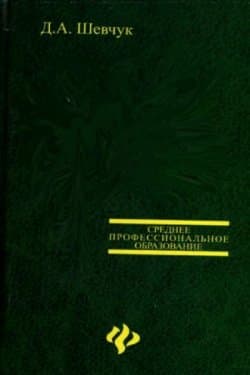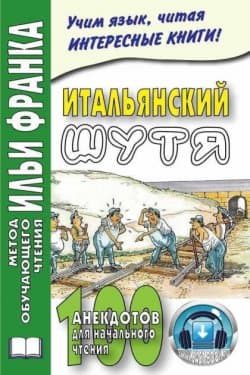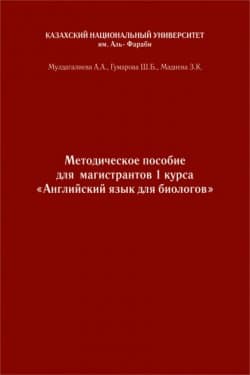Английский язык. Учебно-методическое пособие к практическим занятиям для биологов бакалавриата и магистратуры - З. Мадиева, Шолпан Гумарова, Айжан Мулдагалиева (2003)
-
Год:2003
-
Название:Английский язык. Учебно-методическое пособие к практическим занятиям для биологов бакалавриата и магистратуры
-
Автор:
-
Жанр:
-
Серия:
-
Оригинал:Английский
-
Язык:Английский
-
Издательство:КазНУ
-
Страниц:6
-
Рейтинг:
-
Ваша оценка:
Сборник произведено из приспособленных и уникальных слов. Любой задание подключает слово для интенсивной переработки и слово для устного и письменного перевода. Разработан лексико–грамматический ткань, серия упражнений к словам и деятельный лексика. В конце дан вспомогательный ткань – уникальные слова из британских и американских источников и Онлайна для подготовки отчетов и написания рефератов. Пособие разрешает купить способности чтения и перевода особой литературы, освоить терминологию и взростить устную речь. «То, собственно что неувязка загрязнения находящейся вокруг среды и экологии стала самой необходимой для населения земли, бесспорно для всех. Чем более развивается культура, что острее делаются экологические трудности. Загрязнение воздуха, воды и земли индустрией в реальное время добивается больших масштабов. Он ломает находящуюся вокруг среду в большущих городках. Воздух загрязняют в ведущем системы отопления и авто. Вы понимаете, какой трафик в большущих городках. Чем медлительнее перемещение, что более выхлопных газов.
Английский язык. Учебно-методическое пособие к практическим занятиям для биологов бакалавриата и магистратуры - З. Мадиева, Шолпан Гумарова, Айжан Мулдагалиева читать онлайн бесплатно полную версию книги
Until recently, Kazakhstan has been better known for the harmful effects of the Semipalatinsk nuclear testing range and the desiccation of the Aral Sea than for its wildlife. In fact, the vast country supports rich and diverse population of flora and fauna. Kazakhstan occupies an enormous territory, extending from the Volga River on the West to the Altai Mountains on the East and from the Southern Urals and Western Siberia in the North to the snowy peaks of the Tien Shan Range and the deserts of Central Asia in the South. The country's climatic zones include everything from steppes, deserts and semideserts to mountain woodlands, riverine wetlands and pothole lakes. In this varied landscape can be found 104 species of amphibiance, 52 of reptiles, 488 of birds and 187 of mammals and nearly 5000 species of higher plants.
Now, however, this natural bounty is in jeopardy. Although Kazakhstan's population and its impact on the land are comparatively low; its biodiversity is seriously threatened in a number of ways. The alteration of the land that occured in the 1960's, when Khruschev ordered the country to begin cultivating corn on a mass scale, caused widespread damage. Rivers that fed steppe lakes were dammed and agricultural cultivation of the steppes, floodplains and marshes forced changes in natural ecosystems, exacerbated by the use of chemical pesticides, many already banned in the West. In addition, Kazakh industry generally does not employ any emission-control equipment or attempt cleanup of the environmental damage it causes. As a result, many natural species are now officially considered rare or endangered.
The country's economic crisis had led to a lessening of the human impact on natural ecosystems due to a decline in agriculture and industrial production. The situation could, however, take a rapid turn for the worse since the largely unregulated transition to a market economy has encouraged extensive commercil use of many plant and animal species including the export of natural products used for medicinal purposes such as antilope horn; the sale of rare insects in demand by collectors and the capture of birds of prey.
Unfortunately, no comprehensive natural conservation program exists at the present time. The isolated projects that are under way are targeted at regions of environmental crisis, such as the Aral Sea and the area around Semipalatinsk nuclear testing ground. Governmental structures charged with developing a national conservation strategy appear slow and unmotivated. The state, occupied with solving serious economic problems, cannot pay adequate attention to nature conservation.
In Kazakhstan no mass movement for nature protection exists as it does in western countries, but a few nongovernmental groups are beginning to form and take action. The activities of nongovermental organizations which are occuring in more and more cities around the country raise hopes for improvement of the nature conservation climate in Kazakhstan.
From "Surviving Together", T. Bragina, a scientist worker.
EXERCISES:
1. Translate the following into English:
motivate – motivation – unmotivated, occupy – occupation, serious – seriously, economy – economic – economics, attention – attentive – inattentive – attentively, nature – natural, conservation – conservative – conserve, protect – protection, form – formation, act – activity – action, organize – organization, hope – hopeful – hopeless – hopefulness.
2. Find in the text the English equivalents for the following words and word-combinations:
массовое движение, защита природы, западные страны, неправительственные организации, до недавнего времени, ядерные испытания, полигон, огромная территория, климатические зоны, полупустыня, пестициды, оборудование, рыночная экономика, в настоящее время, правительственные структуры, экономические проблемы.
 Вопросы и упражнения по дисциплине ВОУД «Неорганическая химия» София Романова, Оксана Пономаренко
Вопросы и упражнения по дисциплине ВОУД «Неорганическая химия» София Романова, Оксана Пономаренко
 Будущее Земли Эдвард Уилсон
Будущее Земли Эдвард Уилсон
 Мировая экономика Денис Шевчук
Мировая экономика Денис Шевчук
 Итальянский шутя. 100 анекдотов для начального чтения Ефремова Мария
Итальянский шутя. 100 анекдотов для начального чтения Ефремова Мария
 Двойня или Чудо в квадрате. Пособие для мам близнецов и двойняшек Ольшевская Анастасия
Двойня или Чудо в квадрате. Пособие для мам близнецов и двойняшек Ольшевская Анастасия
 Грамматика киноязыка Арижон Даниэль
Грамматика киноязыка Арижон Даниэль

 Пир теней
Пир теней  Князь во все времена
Князь во все времена  Когда порвется нить
Когда порвется нить  Пока я здесь
Пока я здесь 



